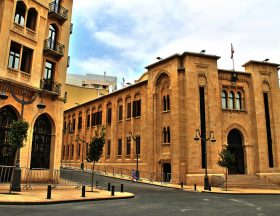According to figures published by the Central Bank, the current account deficit was reduced from $ 9.8 billion or 3.2% of GDP during the first nine months of fiscal year 2018/2019 to $ 7.3 billion (i.e. 2.2% of GDP) during the 2019/2020 fiscal year (July 2019-March 2020), i.e. before the Covid 19 crisis made its effects felt.
Meanwhile, the balance of payments surplus fell from $ 351.2 million to $ 5.1 billion at the same time.
The trade deficit was reduced from $ 29.7 billion (or 9.8% of GDP) to $ 28.1 billion (or 8.6% of GDP). The energy deficit fell from $ 294.3 million to $ 773.3 million, the amount of hydrocarbon exports (-14% to $ 7.3 billion) having decreased more rapidly than that of imports (-8% to 8 , $ 1 billion).
The amount of non-hydrocarbon exports increased by 10% to $ 13.6 billion while that of non-hydrocarbon imports decreased by 2% to $ 40.9 billion.
The amount of revenue from the operation of the Suez Canal rose from $ 4.3 billion to $ 4.5 billion, an increase of over 4%.
Tourism receipts rose from $ 9.4 billion to $ 9.6 billion, an increase of close to 2%.
Expatriate transfers (remittances) rose from $ 18.2 billion to $ 21.5 billion, an increase of 18%.
Net direct investment flows were reduced from $ 6.5 billion to $ 5.9 billion.
The balance of portfolio investment flows was reduced from a surplus of $ 1.1 billion to a deficit of $ 7.9 billion.
The Egyptian authorities have announced the first economic results for the 2019/2020 fiscal year which ended in June.
The GDP volume growth rate was reduced from 5.6% in 2018/2019 to 3.8% in 2019/2020 against 6% initially forecast. The public deficit was reduced from 8.2% of GDP in 2018/2019 to 7.8% of GDP in 2019/2020.
The primary surplus was reduced from 2% of GDP to 1.8% of GDP. As for the public debt, it was reduced from 90.4% of GDP at the end of June 2019 to 86.1% of GDP at the end of June 2020.











Réagissez à cet article